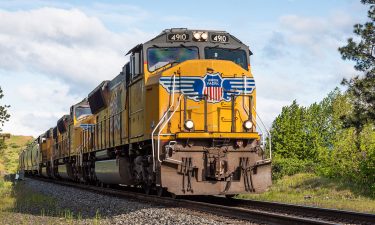Proposals to launch a trial to allow bikes on trams will be considered by transport leaders. Metrolink currently allows folded bikes in bags on trams but under current rules, standard bikes are not permitted.
Transport for Greater Manchester (TfGM) has now confirmed proposals to undertake a guided pilot to test the safe carriage of bikes and non-standard cycles on off-peak tram services.
During the guided pilot, there will be no change to the conditions of carriage for customers – only invited participants will be able to take their bikes on Metrolink under test conditions during the pilot.
The trial, due to be considered by the Bee Network Committee at its next meeting, will take place under the supervision of TfGM and the tram operator, Keolis Amey Metrolink to minimise the impact on passengers and maintain public safety.
Volunteer cyclists will take their bikes on board, sampling different routes and stops at different times of the day and days of the week. Feedback will be sought from other passengers and the cyclists themselves.
Greater Manchester Mayor Andy Burnham committed to carrying out the pilot study as part of his mayoral manifesto, which was also recommended by Active Travel Commissioner Dame Sarah Storey as part of her Refreshed Active Travel Mission.
In the last year, a working group from TfGM has teamed up with consultants to carry out research and gain insight from other light rail networks.
The next step is to study the impact of bikes on trams in practice on various routes and scenarios across the network. The pilot study will also look at the carriage of adapted bikes used as mobility aids, scooters and a broader range of mobility scooters than are not currently permitted.
Consideration will be given to the space required to transport bikes alongside passengers, taking account of the existing challenges of accommodating bikes both on trams and on the wider Metrolink network, including stops and transport interchanges.
At the same time as bike users, people who have a range of lived experiences will be involved too, including those with disabilities and those travelling with pushchairs. Their participation will enable researchers to create different scenarios that would exist if bikes were allowed on trams, in a controlled way, and with experiences of all participants taken on board.
The pilot will start at the end February and will take place over a period of four-to-six weeks, with results presented back to the Bee Network Committee in the summer. TfGM will shortly recruit volunteers from groups it is already working with to take part the guided pilot.
Dame Sarah Storey, Active Travel Commissioner for Greater Manchester, said: “My recommendation to trial the carriage of non-folding bikes on trams is borne from the ambition to deliver a universally accessible Bee Network in Greater Manchester, where everyone has the choice to switch between different modes in one journey should they need to, as well as ensuring that people who use their cycle as a mobility aid aren’t excluded from using the service.
“I fully support the mayor’s manifesto commitment to investigate changing the current arrangements and have long advocated for the benefits of allowing what would be a naturally small number of users, to travel responsibly with a bike during off-peak periods.
“Like many others – I’ve experienced for myself the disappointment of being forced to travel by car with my bike when I’d rather not, because the choice to travel by tram isn’t currently available.
“In order to help us maximise the benefits that any changes might bring, it’s vital a thorough study is undertaken to assess the feasibility of bringing non-folding and non-standard bikes on trams.
“The proposed pilot is subject to approval at next week’s Bee Network Committee and should it go ahead, I look forward to examining the study’s findings and working on what comes next.”
A full risk assessment will inform the pilot and the supervised nature of the study will ensure that any impact on passengers is kept to a minimum.
Working with the Metrolink Operator, KAM, TfGM will invite volunteers to take part with various bikes across different routes. Researchers will then interview volunteers, customers and staff to inform a follow-up report to the Bee Network Committee with recommendations regarding the carriage of bikes on Metrolink.
Photo credit: Transport for Greater Manchester

